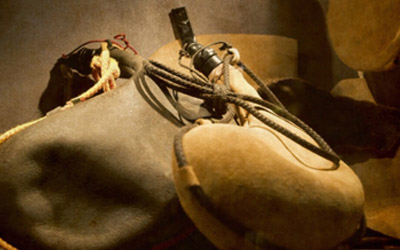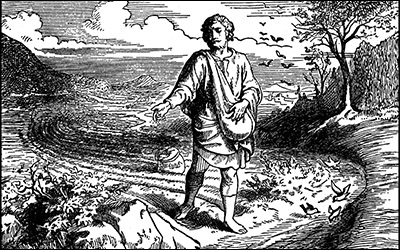Parable of the Evil Steward
Unlawful Debt Reduction.
(Bấm vào đây để đọc tiếng Việt)
 The following is a summary of our most recent Sunday study, which was based on Luke 16's Parable of the Shrewd Manager. This study will shed light on who the shrewd manager represents, the meaning of the detbs, the manager's debt reduction, and the consequences. I wrote an article about the same parable in May 2015, but my understanding of the New Covenant has grown significantly since then. This calls for a rewrite.
The following is a summary of our most recent Sunday study, which was based on Luke 16's Parable of the Shrewd Manager. This study will shed light on who the shrewd manager represents, the meaning of the detbs, the manager's debt reduction, and the consequences. I wrote an article about the same parable in May 2015, but my understanding of the New Covenant has grown significantly since then. This calls for a rewrite.
1. LUKE 16:1-12
“1Jesus also said to the disciples, “There was a rich man who was informed of accusations that his manager was wasting his assets.
2So he called the manager in and said to him, ‘What is this I hear about you? Turn in the account of your administration, because you can no longer be my manager.’
3Then the manager said to himself, ‘What should I do, since my master is taking my position away from me? I’m not strong enough to dig, and I’m too ashamed to beg.
4I know what to do so that when I am put out of management, people will welcome me into their homes.’
5So he contacted his master’s debtors one by one. He asked the first, ‘How much do you owe my master?’
6The man replied, ‘A hundred measures of olive oil.’ The manager said to him, ‘Take your bill, sit down quickly, and write fifty.’
7Then he said to another, ‘And how much do you owe?’ The second man replied, ‘A hundred measures of wheat.’ The manager said to him, ‘Take your bill, and write eighty.’
8The master commended the dishonest manager because he acted shrewdly. For the people of this world are more shrewd in dealing with their contemporaries than the people of light.
9And I tell you, make friends for yourselves by how you use worldly wealth, so that when it runs out you will be welcomed into the eternal homes.
10“The one who is faithful in a very little is also faithful in much, and the one who is dishonest in a very little is also dishonest in much.
11If then you haven’t been trustworthy in handling worldly wealth, who will entrust you with the true riches?
12And if you haven’t been trustworthy with someone else’s property, who will give you your own?”
According to this parable, a manager is about to be fired because he failed to perform his assigned duties. He reduced the debtor who owed ten to eight, and another to five. He did it with the intention of gaining their favor if his job was terminated.
2. WHY WAS THE MAN PRAISED?
In fact, the rich man’s praise is only a sarcasm for the following reasons.
- Jesus divides people into two types, “people of this world,” and “people of light,” and it seems obvious that he considers the shrewd manager to be of the “people of this world.”
- This manager follows the world’s way of buying not only things of this world, but also “eternal homes.” To a Buddhist, Nirvana is the eternal home; to an atheist, it is their posterity. Each person or religion may have a different perspective on their eternal homes. God’s eternal homes, on the other hand, cannot be purchased; they must be accepted as gifts through faith.
- Anyone who cannot be trusted with worldly responsibilities cannot be trusted with “true riches,” which is the gospel, the good news of salvation.
As a result, the rich man’s praise is sarcastic, implying that the wise manager is only wise in this world, whereas the “people of light” receive wisdom from God.
3. THE PHARASAICAL LAW
God gave the Israelites the Ten Commandments, as well as a set of Moses’ law, to serve as a “guardian to lead them to Christ” (Galatians 3:24). But, because they had sinned against him, he exiled them to Babylon. They had nearly 70 years there, under the leadership of the Pharisees, to reflect on their sins. As a result, they resolved that when the Lord allows them to return to their homeland, they will do everything in their power to no longer sin against him.
As a result, a set of Pharasaical law was created, which serves as a boundary around Moses’ law. If they violate Pharasaical law, there may be intervention before Moses’ law is violated, allowing them to avoid being exiled again. However, this is only the “people of this world’s” calculation.
The Pharasees act like the shrewd manager in the parable by presenting their own interpretation of the law to the people. The Israelites were required to comply with the Ten Commandments and Moses’ law, but the Pharasaical law only required a small portion of it. For example, the fourth commandment is addressed as follows: “Remember the Sabbath day to set it apart as holy.” However, in the Soncino edition of the Talmud, page 759, section 149a, states: to keep the Sabbath, you should not look in a wall-hung mirror, light a candle, but you may hire a Gentile to do so, and sell an egg laid on the Sabbath to a Gentile. If you follow these rules, you are considered to have fulfilled God’s commandments.
Another point to mention is that after many generations of living under Pharasaical law, the people regard it as more important than Moses’ law and the Ten Commandments.
4. THE PHARISEES AND THE SHREWD MANAGER
The Pharisees lower God’s standard in the same way that the shrewd manager reduces the debtors’ debt. Some of us may wonder, “What does this have to do with the gospel of salvation?” It most emphatically does for at least one major reason: whenever Jesus uses a parable, he is referring to something very important, and they all point to the gospel of salvation.
The shrewd manager’s debt reduction has the effect of preventing the debtor from realizing the extent of their debt. The reduction of God’s and Moses’ law to Pharasaical law also has the effect of shielding sinners from realizing the extent of their sins.
Galatians 3:24 writes, “Thus the law had become our guardian until Christ, so that we could be declared righteous by faith.”
People’s eyes will not be opened to see God’s gospel of grace given in Christ unless they see the fearsomeness of the law, such as the fearsomeness of the scene around Mount Sinai when Moses was descending with the Ten Commandments written on stone tablets, so much so that even wild animals were afraid.
5. CONCLUSION
I’m concerned that the attempt to weaken the Old Covenant law is not limited to the Pharasaical era, but that even now, under the New Covenant, we see widespread reduction of the new law, which is the law of the Spirit of life received by grace through faith. How do they diminish the power of the gospel of grace? By reasserting the Old Covenant law’s authority over the believers.
Nghi Nguyen
- Scripture quoted by permission. All scripture quotations, unless otherwise indicated, are taken from the NET Bible® copyright ©1996-2006 by Biblical Studies Press, L.L.C. All rights reserved.
Disclaimer: This is my own opinion on the topic, which does not necessarily reflect the church's theology, or beliefs of the individuals in it — Nghi Nguyen

